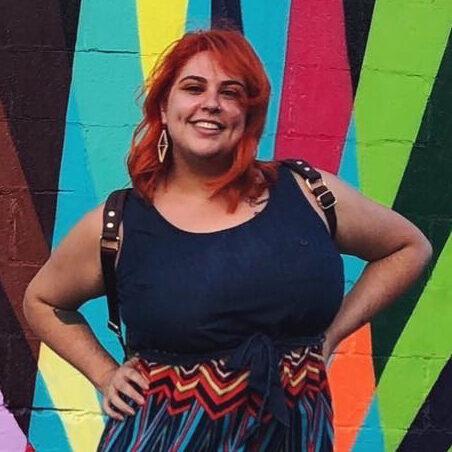
February marked a year since Colorado changed its rules to expand its emergency Medicaid coverage, allowing undocumented immigrants to receive regular dialysis treatment.
Ricardo Seañez Jaquez came prepared to share his story at Sloan’s Lake on a breezy Saturday afternoon. He was having a little trouble walking around. (That happens when you’ve had kidney failure for seven years.) So Seañez Jaquez sat down to talk.
He recounted the day he realized something was wrong.
“One day I was getting home from work and I couldn’t get out of my car,” Seañez Jaquez said in Spanish. “I didn’t have any strength in my feet and that really worried me. I got checked out at a hospital and it turned out that my kidneys were working at 20 percent capacity.”
And it just got worse from there. Because he’s undocumented, Seañez Jaquez could only get treatment in an emergency room when things got really bad. He said it felt like he was drowning. And it would happen once every week.
“The first symptom that sets in is the shortness of breath,” he said. “Your potassium is really high, you feel dizzy, your feet are weak. Those are the worst symptoms you feel when you need dialysis.”
Normally, patients who need dialysis get treatment, consistently, three times a week. They don’t have to wait for their lungs to fill with fluid.
“Now imagine somebody who does it once a week. You can imagine how they’d show up looking the following week,” he said. “I lived it.”
And the symptoms were devastating every time.
“We never thought things would change until Doctor Lily gave us hope.”
“Doctor Lily” is Doctor Lilia Cervantes, with Denver Health. She’s been treating dozens of undocumented people with kidney failure for years. Cervantes has seen the vicious cycle they have to deal with — going in and out of the emergency department.
“They’re near death. You discharge them and they look completely different,” she said. “They’re able to participate in life, participate with their family, only to readmit them the week later.”
Cervantes remembers how bad it got for a patient named Hilda.
Hilda was a 20-something mother of two. She had kidney failure. She was undocumented. She was one of those patients who’d come in on the brink of death every week.
“Over about a couple of years, she ended up suffering about three cardiac arrests,” Cervantes said.
And every time this happened, Hilda’s little boys witnessed everything. In fact, they’re the ones who called 911. Cervantes said Hilda couldn’t bear the trauma it caused them, so she decided she needed to stop getting emergency dialysis.
And she did. Hilda found an adoptive family for her sons, then she went to Mexico to see her father one last time. She died on Mother’s Day, 2014.
After that, Cervantes got to work.
The federal government mandates that every hospital that accepts Medicaid must provide emergency medical care to everyone who needs it, regardless of their citizenship status or their ability to pay. That’s how Hilda and Seañez Jaquez were able to get their dialysis when things got dire.
But the system only allowed undocumented patients to get dialysis when they were on the brink of death. The federal Medicaid system only paid for that emergency care, not ongoing dialysis.
So undocumented people could only get emergency, bring-you-back-from-the-brink-of-death dialysis. A 2017 study in the Journal of the American Medical Association found that people receiving this type of treatment are 14 times more likely to die compared to those receiving regular, tri-weekly dialysis.
But each state can set its own requirements. Cervantes set out to prove that Colorado — along with patients — would be better off with fully covered dialysis.
“Initially I started working with stakeholders. Not just within Denver Health, but health policy folks to think of those critical research questions that would move the leadership at our state Medicaid agency,” Cervantes explained.
It took five years, but Colorado’s Medicaid department changed its policy.
February 2020 marked the first anniversary of the change going into effect. Cervantes said it’s made a huge difference in her patients’ lives. She also wants to acknowledge that teamwork was a big factor.
Sarah McAfee agrees. She’s with the Center for Health Progress, one of the groups that helped push for the change.
“That is so much better for their health outcomes. It is so much better for their families,” McAfee said. “And it’s so much better for Colorado’s bottom line because it saves a lot of money to do this in a more regular way.”
She’s right — the latest available data, going through July 2019, shows the state is on track to save up to $19 million since the rule change went into effect.
Before the change, Medicaid paid about $20,000 per patient per month. Now, covering them through regular dialysis costs about $8,000.
“It’s a substantial difference in cost between the two,” McAfee said. “And there’s a massive human cost that you’re saving as well.”
With dialysis is covered, Cervantes and others are looking to do the same for more conditions, like cancer treatments.
Now that Seañez Jaquez is getting regular dialysis, he’s feeling like himself again — or pretty close to it.
“Now I’m getting better again. I’m not at 100 percent. I’d say I’m at about 88 percent,” he said. “We’re hoping that I’ll reach that last 12 percent soon.”









